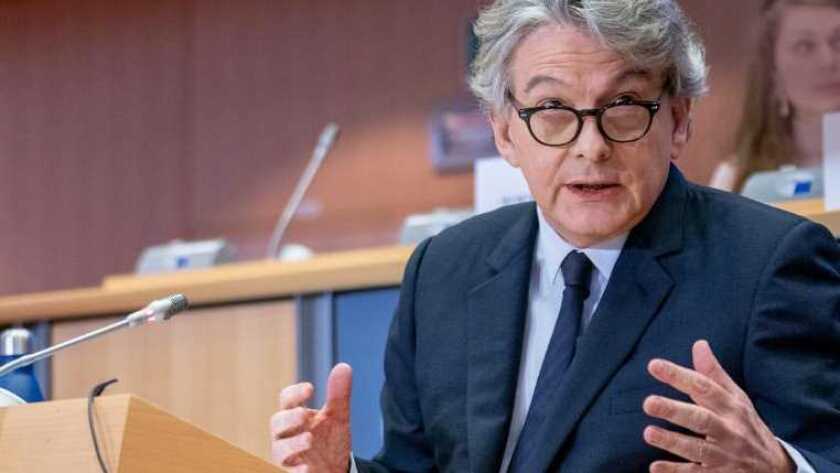The project, called IRIS² – which stands for “Infrastructure for Resilience, Interconnectivity and Security by Satellite” – will focus on government services, including defence applications, for the 27-nation EU, but will also offer services “to the whole of Europe, including areas that do not currently benefit from broadband internet, as well as to the whole of Africa”, said Thierry Breton (pictured), an EU commissioner with responsibility for the internal market.
“IRIS² establishes space as a vector of our European autonomy, a vector of connectivity and a vector of resilience,” said Breton. “It heightens Europe’s role as a true space power. With a clear ambition and sense of direction.”
Contributions from the European Space Agency (ESA) plus the private sector will boost the €2.4 billion budget, said Breton.
“IRIS² will be a constellation at the cutting edge of technology, to give Europe a lead, for example in quantum encryption. It will therefore be a vector of innovation,” he said.
The project has been agreed by the European Parliament, the Council of Ministers and the European Commission, and is now subject to formal approval by the European Parliament and the Council.
The EU said it wanted to avoid “dependencies on third-countries” and to reinforce “the resilience of our value chains”. It will integrate the planned European Quantum Communication Infrastructure (EuroQCI).
“IRIS² will be a constellation at the cutting edge of technology, to give Europe a lead, for example in quantum encryption. It will therefore be a vector of innovation,” said Breton.
His colleague Margrethe Vestager, executive vice-president at the Commission, said: “Secure and efficient connectivity will play a key role in Europe’s digital transformation and make us more competitive. Through this programme, the EU will be at the forefront of secure satellite communication, as it is today with Galileo for satellite navigation and with Copernicus for earth observation.”






